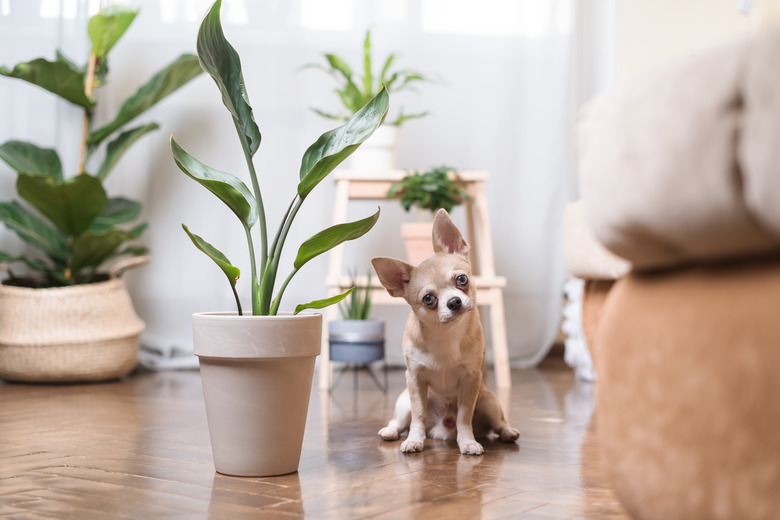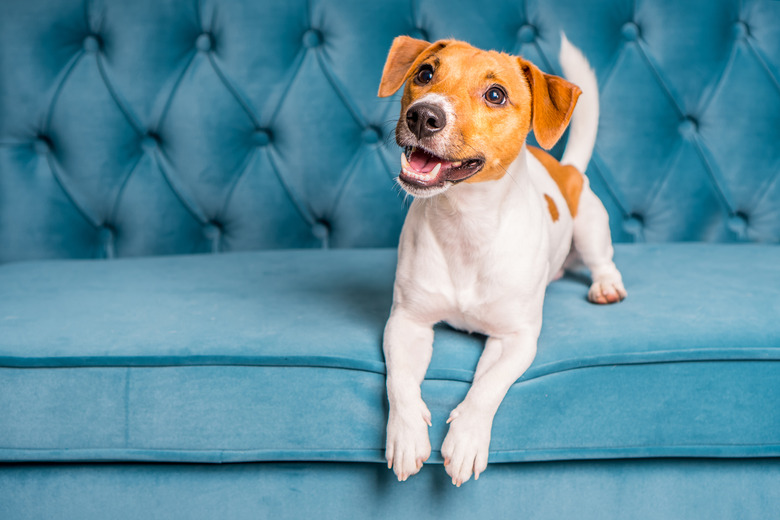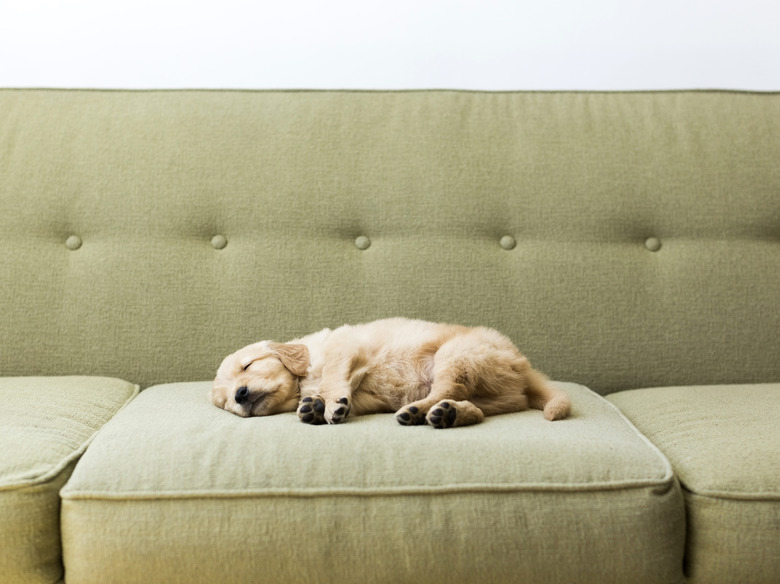How To Stop A Dog From Peeing On The Couch
We may receive a commission on purchases made from links.
A dog peeing inside of the home is a tough enough problem to tackle, and can result in unwanted odors and potential property damage over time. A canine who pees on the furniture may present less of a permanent situation to deal with, but you'll still have a mess on your hands, and the habit must be broken. Preventing a puppy peeing on the couch or a dog from having accidents on the furniture or other areas of the home is best achieved by offering more desirable areas for your dog to use the restroom, and giving her ample opportunities to utilize these fabric-free facilities.
Puppy peeing on couch?
Puppy peeing on couch?
First: urinating in a normally off-limits area may indicate that your dog has a medical issue. A sudden spike in accidents could indicate something like a bladder infection. The first order of business is to visit your veterinarian, who can either rule out a medical issue or give you a solution such as a prescription for a course of antibiotics. If a medical condition is ruled out, your dog may require more regimented training to get your home back in order.
In addition to eliminating waste from their bodies, dogs use their pee for a number of other reasons, like marking their territories, and communicating messages to other dogs. In some cases, a dog may be peeing on one item of furniture as a way to mark that this specific area is his, which is not uncommon among male dogs who share the home with other animals, says the SPCA of Texas. Sometimes, however, a dog may simply have accidents on the couch because they become excited, or have a small or weak bladder, which is often the case when you have a puppy peeing on the couch, or an aging dog.
It may also be possible that your dog is peeing as a sign that they are stressed or anxious about something. Common stressors for some dogs include loud noises, new or frequent visitors in the home, the addition of a new pet or family member, or even a change in diet or medication. In order to effectively prevent your dog from peeing on your couch, identifying the root cause of the issue will go a long way in helping you understand the best course of action to take with your specific pet.
Removing urine smells from the couch or furniture
Removing urine smells from the couch or furniture
To stop a dog from peeing on the couch, the first thing you'll need to do is to remove the urine odor completely, which will go a long way in discouraging repeated behaviors. Enzyme cleaners like Nature's Miracle are commonly used among pet guardians for their ability to break down soil molecules, like urine, to eliminate odors and lift stains. You can also mix one part white vinegar and two parts water in a spray bottle to create a homemade enzyme cleaner, then soak the stain with the solution. Keeping your dog off of your furniture will also, obviously, prevent marking on the area, which can be done by using reward-based training or crate training to encourage your dog to spend time elsewhere.
House training tips for dogs
House training tips for dogs
The best way to stop a dog from peeing on the couch, or in general to keep your canine from eliminating anywhere inside of your home, is to properly house train him, which does take time, effort, and persistence, but is absolutely worth it in the long run. Even if your dog has long outgrown its puppy stages, trainers recommend that any house training regression training following the same protocol as you would for training a puppy. This entails managing the areas of the house where they have access to; setting a consistent schedule for eating, drinking, and going outside; and rewarding every successful potty (going outside where they are supposed to go) with high value treats and praise.
The Humane Society suggests crate training when housebreaking, which can be especially helpful for puppies who are just learning a pee break routine for the first time. Puppies and older dogs who may struggle with incontinence issues will also benefit from regular bathroom breaks, especially after meals and large drinks of water. Whatever your dog's age or training level, using positive reinforcement training methods is recommended as it will encourage your dog to engage in desirable behaviors while creating a stronger bond between the two of you.


